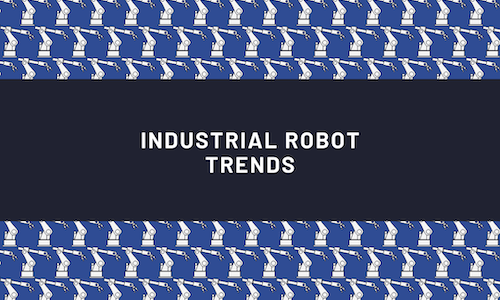The International Federation of Robotics (IFR) keeps tabs on how the world uses industrial robots. They’re the resource to reference when you need to know which countries are installing new factory robots, and how many robots they’re installing. So it makes sense that the IFR has identified a list of industrial robot trends to watch for in 2021.
Industrial robots will perform new tasks.
If you run a system using Indramat motion control products, you know the tasks that industrial robots traditionally perform: assembly, pick and place, manipulation, etc.
However, the new era of industrial robots will use artificial intelligence software combined with sensors to complete new tasks. Robots have had a difficult time sorting, manipulating flexible materials, and adjusting to unpredictable environments, but this could soon change.
Robots will be more connected.
Not only will robots in smart factories communicate through a connected network, but these robots will also be connected with autonomous mobile robots that can navigate factory floors.
These mobile robots allow for increased flexibility and versatility than traditional production lines.
Robots will enter new industries.
Some industries have benefited from automation since factory robots were first introduced. However, the tasks in other industries has proven difficult to automate.
Food and beverage, textiles, wood products, and plastics could all increase the use of more sophisticated, connected, and capable factory robots.
Industrial robots can help reduce carbon emissions.
Newer technologies improve upon on older designs. Modern industrial robots are more energy efficient, which helps reduce energy consumption. These new robots can also prove more precise and more accurate, which helps reduce waste on scrap material and defective products.
Industrial robots can improve supply chains.
The IFR article points out how the COVID-19 pandemic exposed the fragility of global supply chains. This led many manufacturers to prioritize efficient and resilient supply chains to prevent delays and minimize choke points; automation could be key in optimizing inefficient supply chains.
While it’s important to look towards the future of factory automation, it’s even more important to make sure your current industrial machinery is in good working order. Call 479-422-0390, or contact us online, for service, support, or repair for Indramat machines.
